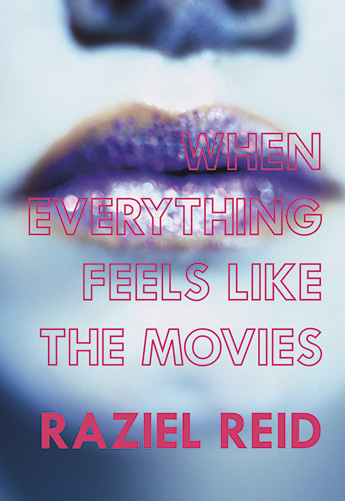When Everything Feels like the Movies, Raziel Reid, 171 pgs, Arsenal Pulp Press, arsenalpulp.com, $15.95
Everyone’s talking about Jude Rothesay: what he’s wearing, where he’s going, who he’s screwing. He’s a star. At least, this is what he tells himself about the attention he gets as a flamboyant gay kid trying to navigate high school in a small mining town.
Raziel Reid’s debut novel shows us a teen coping with homophobia by imagining that the vicious graffiti on his locker are tabloid headlines, the regular gay-bashing he experiences merely the overzealousness of jock-paparazzi.
A blend of confessional, gossip, and daydream, revealed at a manic pace, When Everything Feels like the Movies revels in the depravity and delusions of its young characters. There’s a horrible glamour to the book, compelling perhaps because we know it must end badly. This is the kind of novel people will devour in one sitting: the pages practically turn themselves.
But Reid’s glamorized treatment of his characters’ poverty, desperation, bad home-lives and dangerous school environment, though intrinsic to his story, is not without its problems. We are distanced from the follies of Jude and his family, friends, and enemies by the transparency of their mistakes and self-deceptions. This distance is reassuring, but at the same time it prevents us from meaningfully identifying with his characters. Jude Rothesay is a fascinating, tragic protagonist, but he is one in whom few readers will see themselves. Though the book presents a wide range of intersecting social problems, it is as if Reid means us to look but not to touch: the reassuring distance positions us as spectators, not as people who live in that dangerous, poor, homophobic world.
When Everything Feels like the Movies is an ambitious novel, more successful on some levels than on others. (Andrew Woodrow-Butcher)

